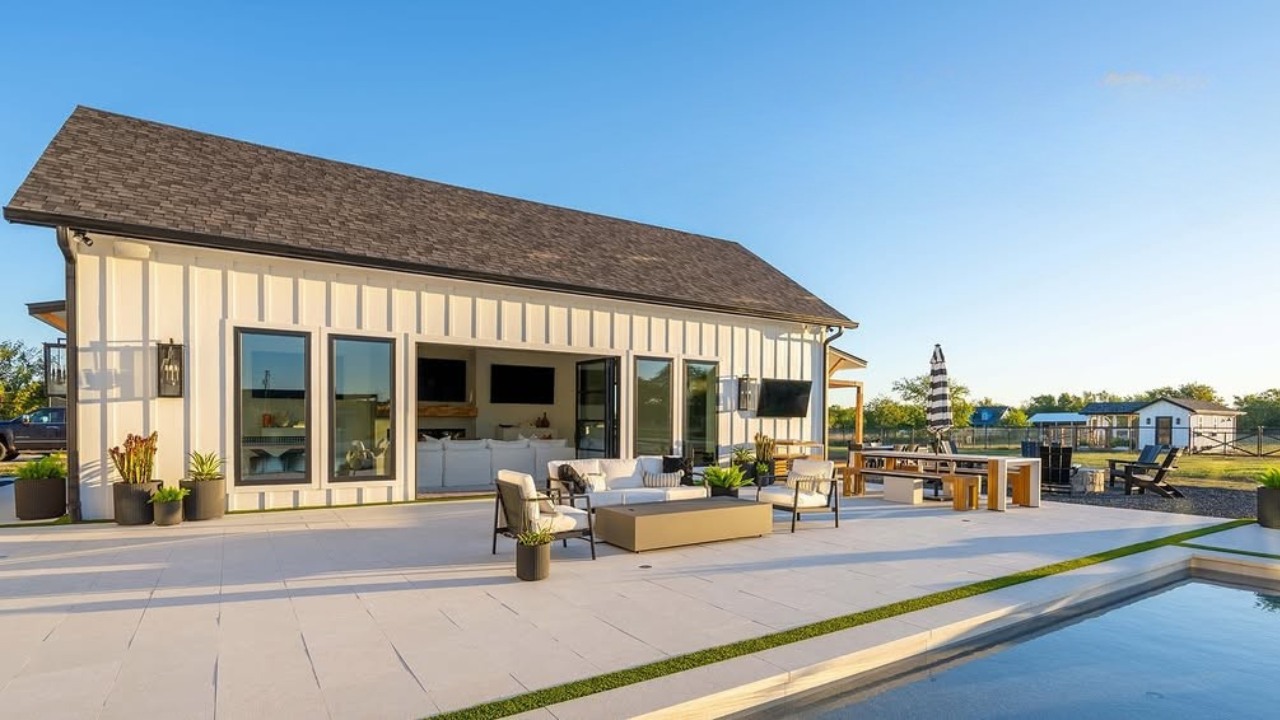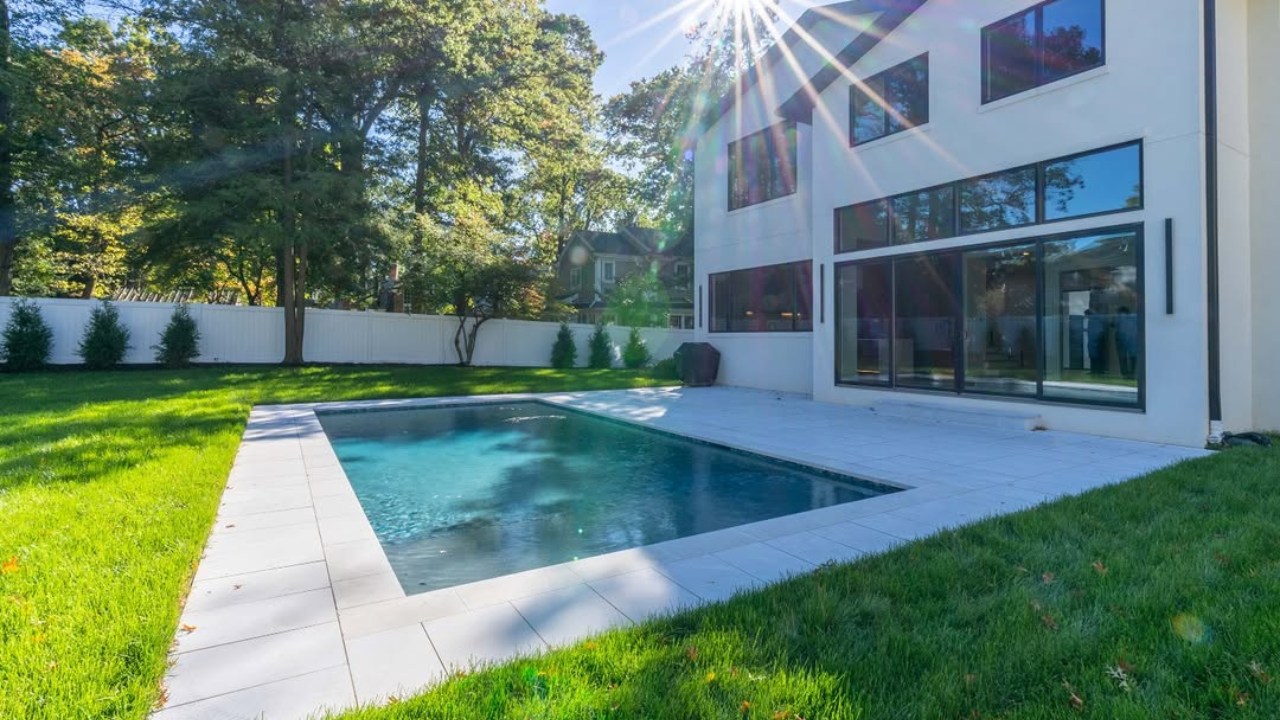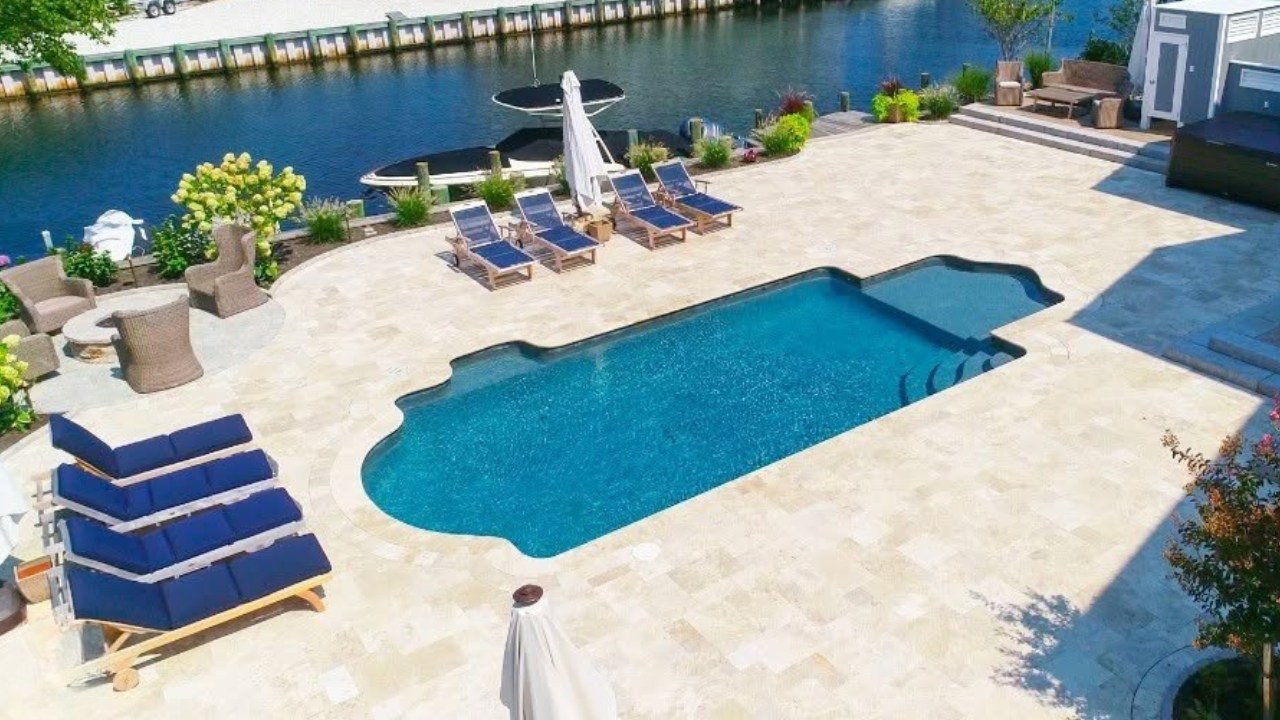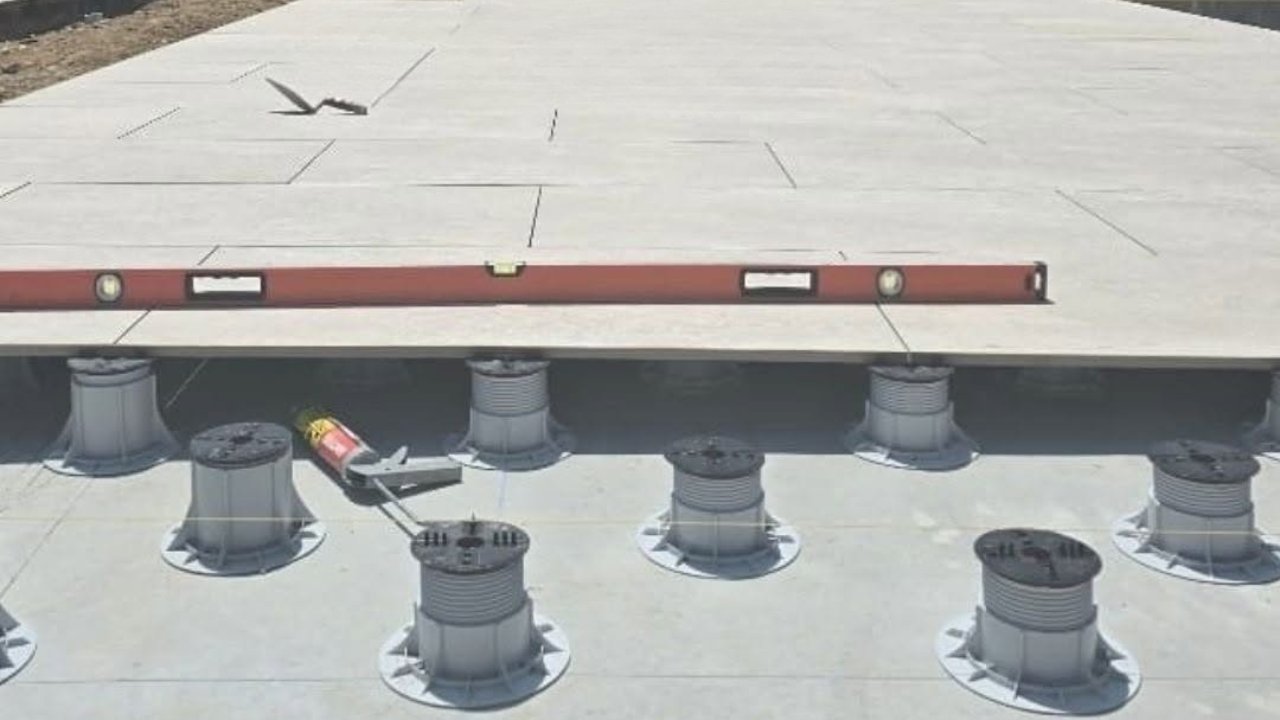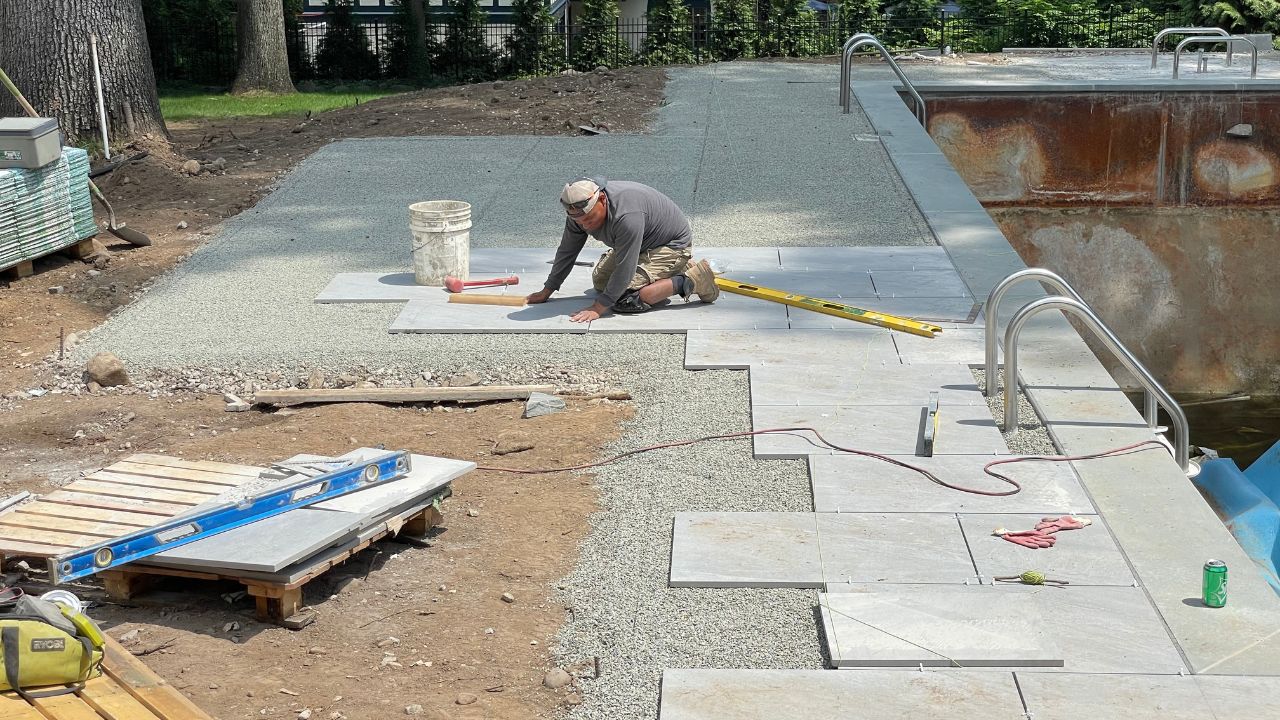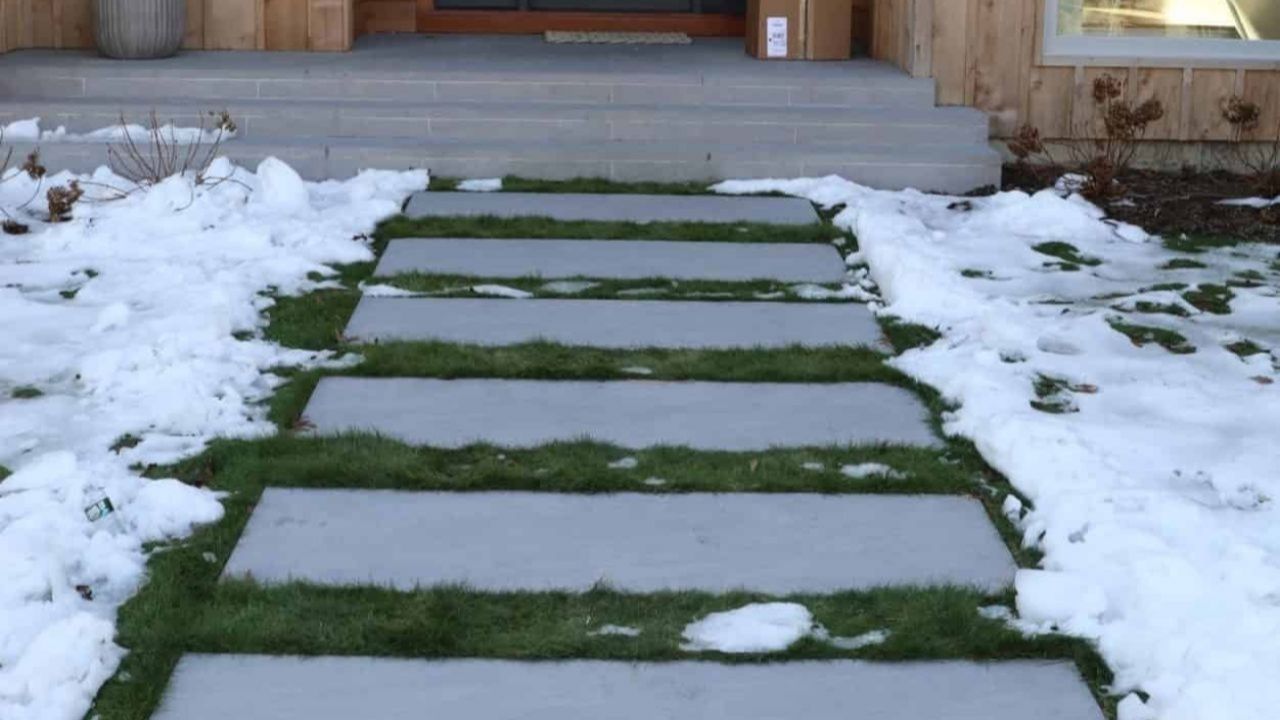The right finish is crucial when it comes to selecting the tile for your indoor or outdoor project. You can find tiles in different finishes, from polished to matte, which are common for most projects. However, you can find a blend of both with the honed finish. Several homeowners, new to the tiles and pavers, often wonder what does honed means for the tile? This finish is not new to the stone industry, but it often confuses homeowners. Here is what you need to know.
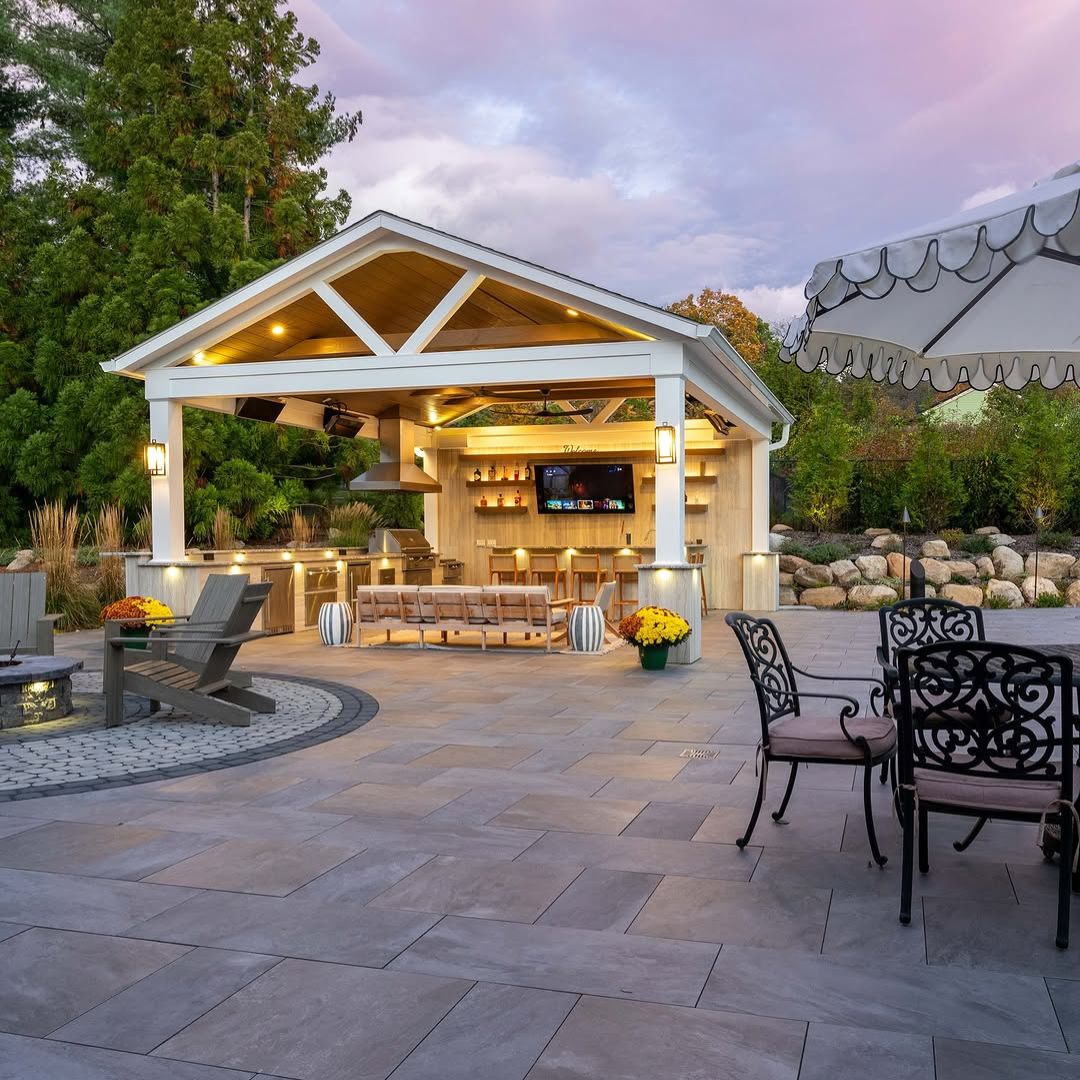
Understanding the Honed Surface
A honed finish is created by grinding the stone surface or tile until it is smooth but not shiny. The resulting surface features a velvety texture that is not so reflective. It lies between a rough and polished finish. Hones is a perfect blend of understated sophistication and modernity. Honed tiles, unlike polished tiles, often hide the imperfections, weathering, and effects of daily usage. It doesn’t reveal the full color depth or veining of the stone. Instead, they offer a more natural and relaxed appearance, perfect for modern minimalist interiors and outdoor landscapes.
You’ll find travertine, porcelain tile, and marble tile most commonly available in honed finishes because they balance beauty and durability.
These days, honed surface is gaining popularity because of its practical features like slip resistance. This surface is polished just right to maintain its matte feel, so it is ideal for areas prone to wet. Honed tile is the best choice for bathrooms, pool decks, shower areas, and living rooms.
Key Features Of a Honed Finish
| Feature | Description |
| Texture | Smooth, flat, and non-reflective |
| Sheen | Matte to low satin |
| Touch | Soft and velvety |
| Maintenance | Easy to clean and less prone to showing smudges or etches |
| Durability | Excellent for high-traffic areas |
| Slip Resistance | Higher than polished surfaces |
| Best For | Bathrooms, pool decks, patios, hallways, and countertops |
Honed vs Matte Finish
When it comes to understanding, what does honed mean? Many people mix honed with matte. While they are somewhat similar, still honed is distinctly different from matte. Both lack gloss, but they differ in how they’re achieved and how they perform.
| Feature | Honed | Matte |
| Process | Mechanically ground to a smooth, low-sheen finish | Manufactured with a surface glaze that diffuses light |
| Texture | Smooth and natural | Flat and uniform |
| Material | Natural stone or porcelain | Usually porcelain or ceramic |
| Look | Subtle and soft | Consistent and muted |
| Slip Resistance | High | Medium to high, depending on glaze |
| Ideal Use | Indoor/outdoor flooring, natural stone | Interior walls or floors |
| Maintenance | Easy to clean, hides wear | Very low maintenance |
It is easier to see the authentic stone character with a honed finish. Matte finish is more uniform. Go for the honed surface to experience authenticity; choose matte for uniform style. To understand their differences in detail, you can explore our full guide on Honed vs Matte Tile.
Honed vs Glazed Finish
Glazed tile features a liquid glass coating baked onto the surface. This makes them semi-gloss or shiny. Honed surfaces, in contrast, rely on mechanical smoothing, not coating. Honed finishes on materials like large porcelain slabs offer a matte, durable appearance that’s perfect for floors and countertops.
| Feature | Honed | Glazed |
| Surface Treatment | Mechanically finished | Coated with glass-like glaze |
| Appearance | Natural and matte | Glossy or semi-gloss |
| Durability | Durable through-body | The surface layer may chip or wear |
| Slip Resistance | Higher | Lower on wet surfaces |
| Porosity | Slightly porous (if stone) | Non-porous |
| Maintenance | Requires sealing (for stone) | Easy to wipe clean |
| Common Use | Natural stone, outdoor pavers | Kitchen walls, low-traffic floors |
The glazed tiles are popular for indoors, but honed tiles are still popular for outdoor performance and aesthetics.
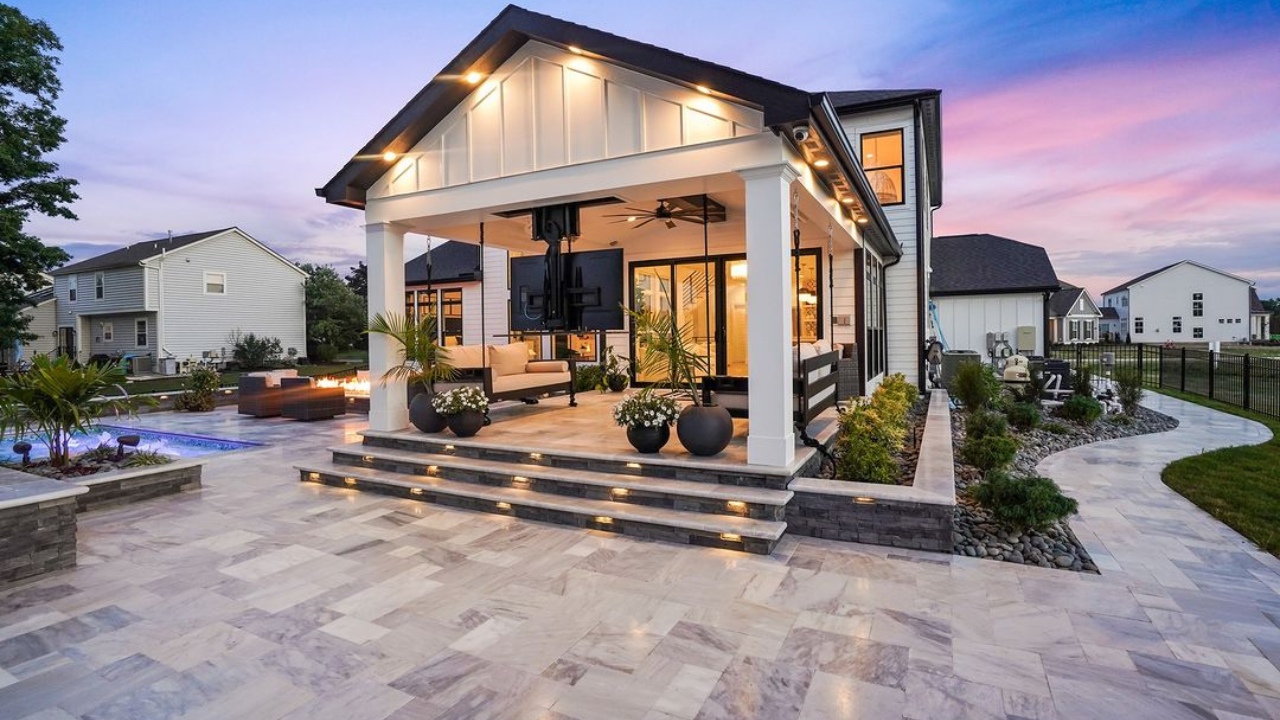
Honed vs Polished Finish
This is the most common comparison. Polished tile surfaces are glossy and mirror-like surfaces that are achieved by buffing the stone to a reflective finish. Honed surfaces, on the other hand, are smooth yet non-reflective. For natural stones like marble tile or travertine, both finishes create unique looks. Learn more in our detailed article on Honed vs Polished Marble.
| Feature | Honed | Polished |
| Look | Soft matte or satin | High-gloss, reflective |
| Texture | Smooth, non-slippery | Slick and smooth |
| Slip Resistance | Excellent | Low when wet |
| Color Depth | Subtle and muted | Deep and vibrant |
| Maintenance | Hides scratches | Shows etches and marks easily |
| Best For | Bathrooms, outdoor spaces | Countertops, formal interiors |
Honed tiles are a perfect choice to create a soothing or calm interior or outdoors. Polished surfaces look grand and luxurious, but they require more maintenance to retain their shine and beauty.
Honed vs Tumbled Finish
The tumbled finish gives the tile or slab an aged or weathered look. It is achieved by putting tiles in a drum with abrasives. It has a somewhat pitted appearance. The honed surface is smoother in comparison, which looks premium.
| Feature | Honed | Tumbled |
| Texture | Smooth and flat | Slightly uneven, weathered |
| Edges | Straight or eased | Soft, rounded |
| Aesthetic | Modern and clean | Antique and old-world |
| Slip Resistance | Moderate to high | Very high |
| Maintenance | Easier to clean | May collect dirt in crevices |
| Best Use | Modern patios, pool decks | Rustic courtyards, heritage projects |
Honed finishes are well-suited in contemporary architecture, while tumbled ones complement traditional or Mediterranean-style designs.
Honed vs Gauged Finish
Gauge tiles are the tiles that are cut to an accurate thickness, not a surface finish. It can be honed, polished, or textured. Here is a comparison of both for a clear idea.
| Feature | Honed | Gauged |
| Meaning | Surface finish | Dimensional accuracy |
| Process | Surface ground smooth | Tile calibrated to uniform thickness |
| Purpose | Aesthetic and tactile quality | Installation precision |
| Applicable To | Stone, porcelain | Mostly natural stone |
| Finish Options | Matte, satin | Any finish (including honed) |
| Advantage | Elegant, safe surface | Easier installation, uniform height |
Choose a gauged honed tile that blends the best of both, which is perfect alignment and a refined matte finish.
Honed vs Unfinished Finish
According to its name, the unfinished tile or stone doesn’t go through any treatment or smoothed. It retains its raw, natural surface texture. Honed surfaces undergo controlled smoothing, resulting in a clean, touch-friendly feel.
| Feature | Honed | Unfinished |
| Surface | Smooth, matte | Raw, rough |
| Process | Ground and leveled | Natural or cut as-is |
| Look | Refined, modern | Rustic, organic |
| Slip Resistance | Medium-high | Very high |
| Maintenance | Easy to clean | Harder to maintain |
| Usage | Indoor/outdoor | Outdoor, rustic areas only |
Outdoor driveways or walkways require traction, which leverages the unfinished finishes. But for refined patios, kitchens, or pool decks, honed offers better usability without losing natural charm.
Transform Your Space with Premium Stone & Porcelain Pavers
Backed by Double Quality Control. Available Across the USA.
When To Choose a Honed Finish?
Honed finish is a great choice for a wide range of applications, but not for all applications. For natural materials like travertine and marble tile, this surface enhances beauty while ensuring durability. Here is when to choose the honed finish.
High-Traffic Areas:
In high-traffic areas like entryways, walkways, driveways, living rooms, and kitchens, the honed finish tiles work great. They have a low sheen, which hides daily wear and usage signs easily.
Wet or Outdoor Environments:
Honed finish is also the best choice for wet areas such as pool copings, bathrooms, showers, and laundry areas. It offers great traction when wet, which reduces slip risks without looking rough.
Low-Maintenance Design Goals:
If you don’t like surfaces that don’t require regular polishing, then a honed finish is the perfect choice. This makes it a low-maintenance surface.
Natural or Minimalist Aesthetics:
The matte finish looks exceptionally modern. The subtle surface without shine or reflecting light is ideal for most minimalist interiors and outdoors.
Durability Without Shine:
The honed tile finish works great for modern residential and commercial projects. It withstands heavy traffic without showing chipping signs. It doesn’t have much shine, doesn’t slip, and doesn’t require regular polishing. This makes it ideal for modern minimalist interiors and outdoors.
Climate Considerations:
The honed surface tiles and pavers stay cool underfoot in a hot and humid climate. This makes them the best choice for outdoor pavements and walkway areas.
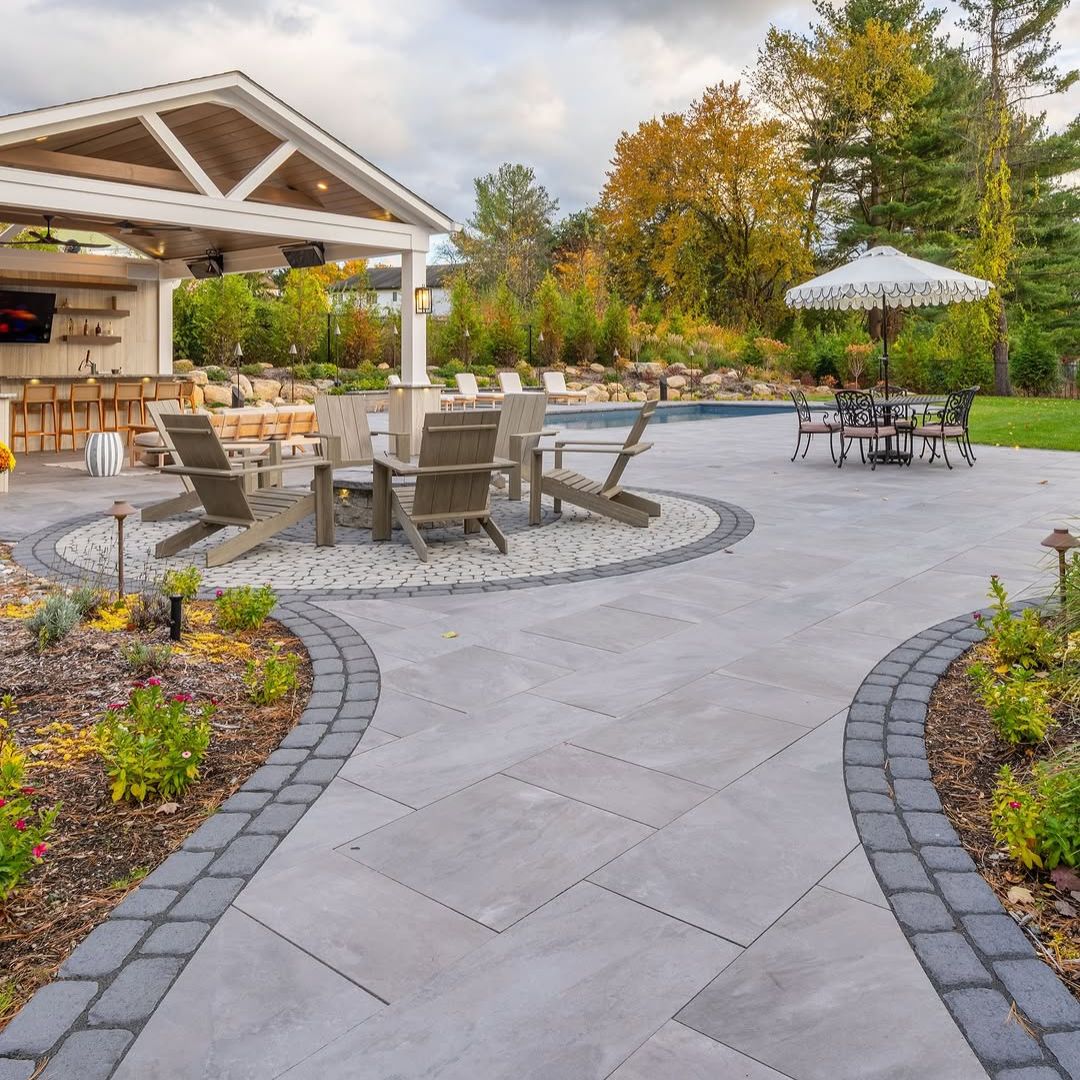
FAQs About Honed Surface Meaning
Let’s answer your questions about honed meanings and more:
Is honed better than polished for flooring?
Yes. Honed surfaces are generally safer for wet areas because of a lower risk of slipping. They also hide scratches better and need less maintenance.
Does honed stone need sealing?
Yes. Most honed stones, especially marble or limestone, have a porous surface. Sealing prevents stains and moisture absorption.
Can honed tiles be used outdoors?
Yes. The mate finish has better traction, which creates a safe walking space in wet areas. This makes honed tile and pavers a perfect choice for patios, pool decks, and garden paths.
How to clean honed stone or tiles?
Use a pH-neutral stone cleaner and a soft mop. Avoid acidic cleaners, which can dull the surface.
Do honed tiles fade over time?
No. Generally, they don’t fade when sealed properly and can maintain their look for decades. Natural stones may slightly patina with age, adding character.
What materials come honed?
You can find honed finish in stone tiles like marble, travertine, limestone, granite, and porcelain pavers.
Available for booking
MOBILE SHOWROOMS
Can’t visit our showroom? No problem! With NT Pavers’ mobile showroom service, we bring our wide range of stones, pavers, and marble right to your doorstep.
Book today, and our trailer or van showroom will visit you anywhere across the East Coast or Midwest—including VA, CT, Long Island, Manhattan, DC, Chicago, and more. Convenient, fast, and hassle-free!
Bottom Line
Knowing what does honed mean can help you make an informed decision about choosing the right finish. This finish features a subtle look that blends polished surface shine and matte’s roughness. The surface is low maintenance, easy to clean, and hides scratches and wear in high-traffic areas.
Choosing the right surface finish can easily change how your space feels and performs. Whether you’re designing a calm interior or a weather-resistant outdoor patio, honed surfaces offer timeless beauty and lasting value. Make sure to choose from a professional and well-reputed natural stone supplier in New Jersey for the best experience.

